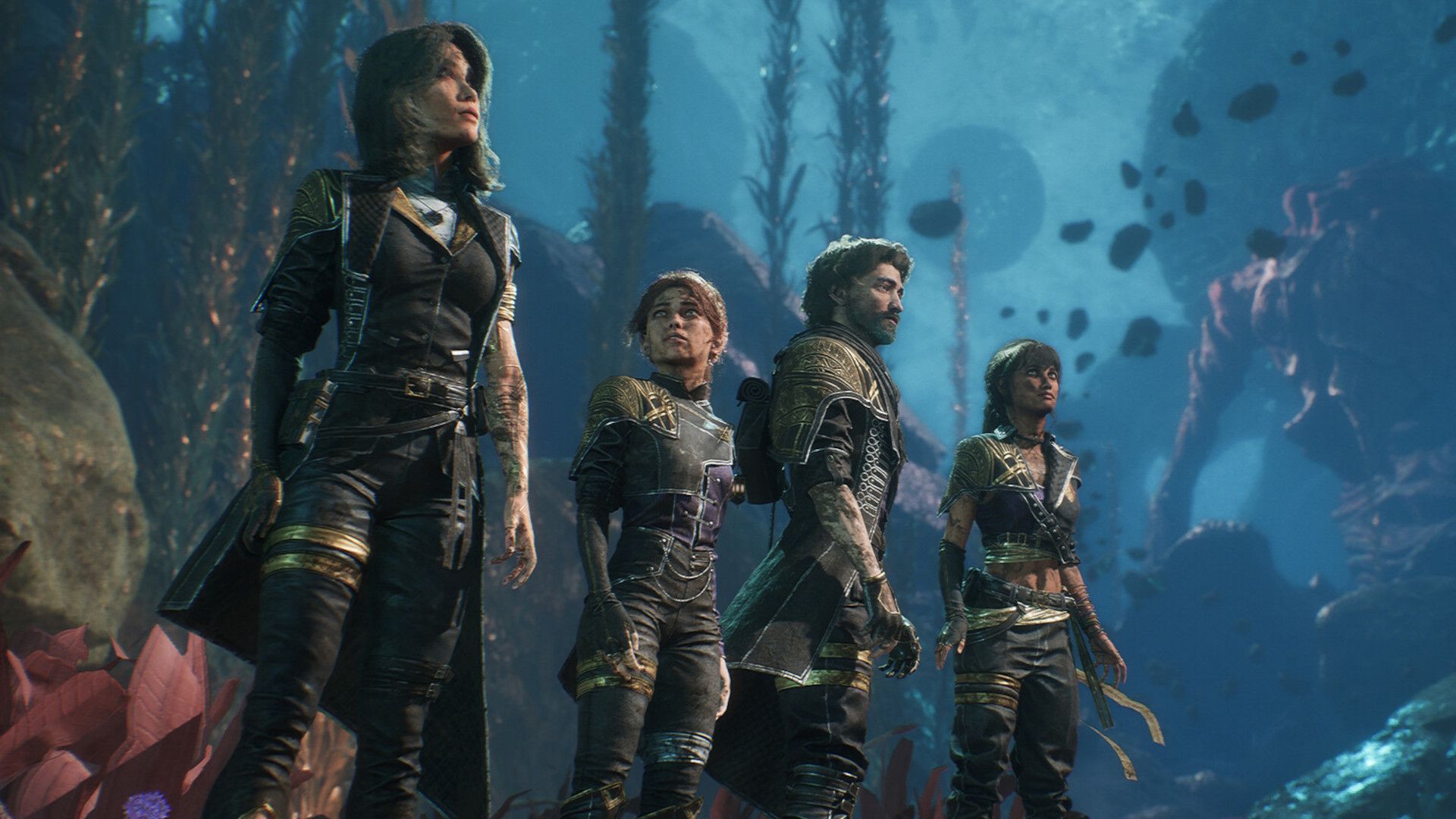/cdn.vox-cdn.com/uploads/chorus_image/image/73134486/helldivers_2_victory.0.jpg)
Image: Arrowhead Game Studios/PlayStation PC LLC via Polygon
It’s healthy to be skeptical when you see microtransactions in games. Many titles cross the line from fair to exploitative, all but forcing players to throw in money that could buy another full game (or more) to actually have a good time. So when initial reports surfaced about Helldivers 2’s microtransactions, people were wary. At first glance, the now-popular live-service shooter utilizes some familiar strategies. There are both free and premium battle passes that feature items that can affect gameplay and a number of currencies to parse out. Plus, there wasn’t a roadmap released at launch, so it was tough to gauge how horrible any microtransactions could be.
But after playing it for around six hours, there doesn’t seem to be anything to worry about. While putting money into Helldivers 2 will allow you to skip ahead of other players a bit, it won’t make a giant impact on gameplay. Most importantly, all of the currencies can be farmed in-game, with only one being available for purchase. Developers at Arrowhead Game Studios have created a system that can give certain players the tiniest edge, but it’s not unfair, nor does it doom players to a vicious cycle in microtransaction hell.
The game has four kinds of currency — Requisition Slips, Medals, Samples, and Super Credits — and the first three are only available through playing missions. While you can find Super Credits (SC) in loot containers or through the battle passes, the main way to “earn” them is through real-world money. Then, you can use them to unlock upgraded armor in the Superstore. Some just provide cosmetic changes, while others give you a higher armor rating or passive bonuses.
I can understand why people get concerned about premium currency like Super Credits. If you spend money on a game, why do you then need to spend extra? Take a look at Suicide Squad: Kill the Justice League, which is a full-priced game that still offers microtransactions for optional cosmetics. Sure, you don’t need new outfits to beat the campaign, and three outfits cost around $10, but the entire game will set you back $70. Why should you spend even more than what a lot of people can afford? Games have been using microtransactions for years now, with studios pushing things like loot boxes and DLC to get people to pay more than the base cost. People seem to be tired of the grind, with live-service efforts like Halo Infinite, Diablo Immortal, and Marvel’s Avengers crashing hard.
:no_upscale()/cdn.vox-cdn.com/uploads/chorus_asset/file/25282414/helldivers_2_super_credits.jpg)
:no_upscale()/cdn.vox-cdn.com/uploads/chorus_asset/file/25282419/helldivers_2_premium_acquisition_center.jpg)
It can take a while to build up the other currency. For example, Samples are collected from various places across the maps but you can easily lose them if you die and don’t raid your corpse after a respawn. These are used to unlock ship modules, which give you permanent upgrades like increased magazine size or reduced cooldowns. The game doesn’t explain this thoroughly, so if you don’t focus on anything beyond the main objectives in each mission, they’re really easy to ignore. Despite any confusion, all of the Helldivers 2 currencies just push you to play more of the game first and foremost, which is all you can ask from any game.
Microtransactions are all over video games as teams look for more ways to fund increasingly expensive development timelines, and it’s easy to take advantage of users. Battle royales, free-to-play mobile games, and many EA sports titles are especially guilty of creating systems to siphon money. Regardless of whether the microtransactions go so far as to be pay-to-win, they can easily prey on people with loot boxes, which are akin to gambling, for the chance to receive premium awards or currency. Diablo Immortal is a recent example of game developer money-grubbing, with too many different currencies to keep track of and the chance to increase the odds of gaining Legendary Gems all working together to create an unscrupulous system where people spent thousands of dollars in the months around launch and still couldn’t get the boosts they wanted.
Live-service titles like Destiny 2 are closer to what Helldivers 2 offers in terms of microtransactions, and could be a sign of what the latter could become if the developers aren’t careful. Most of what you can purchase with Silver, Destiny 2’s premium currency, is purely cosmetic, although you can spend 2,000 Silver (so around $20) to skip a new expansion campaign. One of the bundles currently in the store costs around 2,000 Silver per character, so while it’s completely optional, the FOMO (fear of missing out) you’ll feel seeing all the flashy skins will create a lot of pressure to sink in real-world cash. That’s not even taking into account that you need to put in money each time a new expansion comes out. Being a Destiny 2 fan doesn’t require all your money, but it certainly helps.
:no_upscale()/cdn.vox-cdn.com/uploads/chorus_asset/file/25282467/helldivers_2_premium_battle_pass.jpg)
Image: Arrowhead Game Studios/PlayStation PC LLC via Polygon
I worry that Helldivers 2 will introduce more complex systems to rake in more dough over time, but right now, there’s very little here that feels unfair. Arrowhead CEO Johan Pilestedt said on X (formerly Twitter) that the team doesn’t want to force anybody to pay more if they don’t want to, so hopefully that continues during the game’s lifetime.
It’s certainly not pay-to-win because of one very important aspect: the game is PvE. If you were going up against other players, including some who threw in hundreds of dollars, you might feel there was an unfair advantage. However, in Helldivers 2, everybody’s working together. It not only fits in with the game’s patriotic narrative but it also creates a system where you don’t need to be competitive with other players. Maybe somebody on your team might have better armor or a more impactful gun, but won’t that help you out in the end?
Last weekend, redditor PathsOfRadiance posted a video showing a player diving in front of a projectile to block it from hitting their party member. It’s the kind of self-sacrificing move you’d see at the end of an action movie, with the hero slowly dying out in the arms of the person they saved. Of course, Helldivers 2 is a video game, so the stakes are a lot lower, but also this player had heavy armor on, so they got right back up and continued shooting. Maybe this person had been playing for longer, or they did throw money into the game for it. Whatever the case, it benefited the whole team, not just the individual. You’re not here to “win.” You’re here to do your part in a much larger effort.
Source: Polygon


